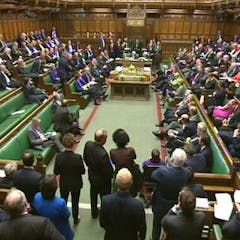
Articles on Evidence based policy
Displaying 1 - 20 of 32 articles

Estimates suggest that every 12 seconds, a child somewhere in the world loses a caregiver to the coronavirus pandemic.

The limitations of traditional literature review approaches could be improved relatively easily with a few key procedures.

The active and uninhibited dissemination of knowledge is vital for the advancement of knowledge.

Policy implementation is about the execution of political decisions, informed by evidence.

With accessible software tools and workflows, machines can be left to do the laborious work so that people can focus on planning, thinking and doing.

Ramaphosa’s “new dawn” will require a rigorous evidence-base of what works to guide high-level policy planning and design.

Africa has a real challenge when it comes to using academic research and evidence to design policies.

Malaria elimination in Malawi is lagging because research isn’t being used properly.

To conserve Earth’s remarkable species, we must also defend the importance of science and scientific integrity.

There’s often limited evidence for many common types of surgery. Understanding what makes good evidence is the key to deciding what’s best for you.

Research looking at evidence-based teaching in higher education tends to be based more on anecdotes than on large, robust and peer-reviewed data.

Without data, people don’t know what to believe or whom to trust. Empirical, thorough data collected by academics can help to fill important governance gaps.

Researchers and policymakers need to talk to each other. If they don’t, important research will merely gather dust and policies might do more harm than good.

The relationship between social science research and advocates and policymakers is undermined if they cherry-pick evidence that supports their goals, ignoring the wider field.

We must improve religious literacy among politicians. They should look to universities for more insight.

There’s a worrying lack of evidence for what works when it comes to drug treatment. And our addiction services are suffering as a result.

Over the last six months a public consensus has emerged among academics, think tanks, community organisations, elements of the superannuation industry and most politicians about superannuation.

A new survey has found MPs are largely in favour of randomised controlled trials, even if they don’t understand why.

Our nation’s future depends on the quality of its thinking and its leaders. As such, science must be at the core of our national discourse.

A series of research projects is to take place in countries including Afghanistan, Palestine and South Africa to address our significant lack of knowledge about how to prevent physical and sexual violence…





